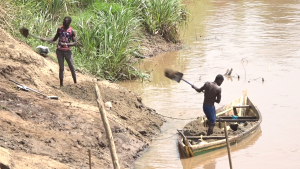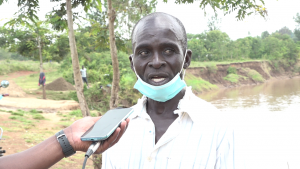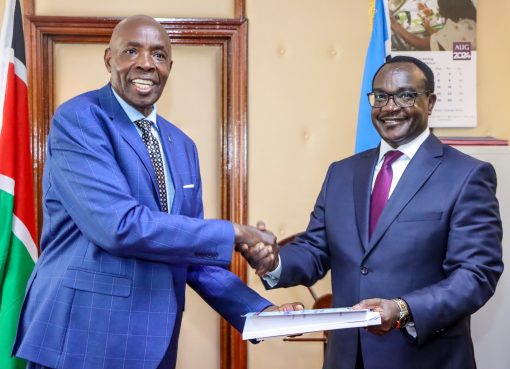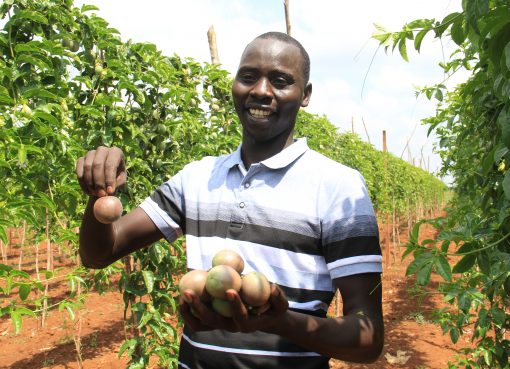As the corona pandemic continues to ravage the economy and rendering many employees redundant, a section of youths living along the lower course of River Nzoia have found refuge in sand mining.
Initially this area was known to harbour specific species of fish such as Odhadho (petrocephalus), Seu (Bagras docmac), Sire (bagrus docmac) and Ningu (gregoris labeo). However, with time the rare delicacies no longer exist and hence the need to shift gears to sand harvesting.

Even though the river bank seems to be degrading at a high rate, these miners seem to be concerned only with their livelihoods.
George Otieno has been mining sand for two years and according to him the sand deposits on the beds of the river offers relief to many.
“Nowadays we have no fish, instead we venture into sand mining where we maximize and sell to middlemen who in turn takes it to towns,” notes Otieno.
The process that they use in harvesting sand is, however, rudimentary with no special equipment.
“A boat is operated by two people, one dives in with a pale or a container that he uses to scoop the sand in the river bed then floats back to the surface as the other person pulls sand filled container into the boat,” he adds.
They repeat the same several times until they fill the canoe before paddling to the river bank to empty it. Otieno says that it takes four full canoes to fill a 12 tonne lorry.

At the end of the day they share the harvest after selling of the sand.
Other than George and the residents of the area, other people have also thronged the site to have a share of the nature’s resource like Chrispinus Ngaywa who hails from the neighbouring Busia County.
“On our side, the floods did a lot of harm we can’t harvest sand there, it forces to come these sides and join our friends in mining the sand,” says Mr Ngaywa.
The challenges however that the harvesters face are a number ranging from health to economic spheres.
The method used poses a threat to the sand scoopers as most of them dive naked without special gears. The water may not be clean and the continual contact with the body may have side effects.
“We have no gears, we dive just as you see, and in case of any accident we may not help much. In the past we saw cases of people diving and not coming out, some get choked with the water while inside,” laments Otieno.
They say that they rely on instincts to determine that one of them has drowned and when this happens, they quickly mobilize each other to dive into the water to search for the victim.
The sand scoopers are now calling on both the national and county governments to help them with diving facilities that would assist them, not only during their normal operations, but in case of accidents such as drowning. Frequent ailments such as typhoid and bilharzia are also a common thing among them.
According to a Medical practitioner Ishmael Abbas the safest way for the sand harvesters is to “ensure they keep their medical covers active in order to manage frequent check-ups whenever necessary. Because they are seriously exposed, not only to diseases but also animal attacks, the water is part of an ecosystem and there are animals that can pose threats to them.”
On the returns, Mr Ngaywa laments of the exploitation by the middlemen who pay very little for the sand.
“A 12 tonne lorry cost a mere Sh5,500 while they sell it at Sh17,000 or even more, you look at that you will realize that we are actually labouring for the middlemen,” lamented Ngaiwa.
He adds, “Very soon we shall be engaging ourselves to form a union from where we shall be selling the sand collectively at a specific price, we can’t go on this way forever.”
By Philip Onyango





